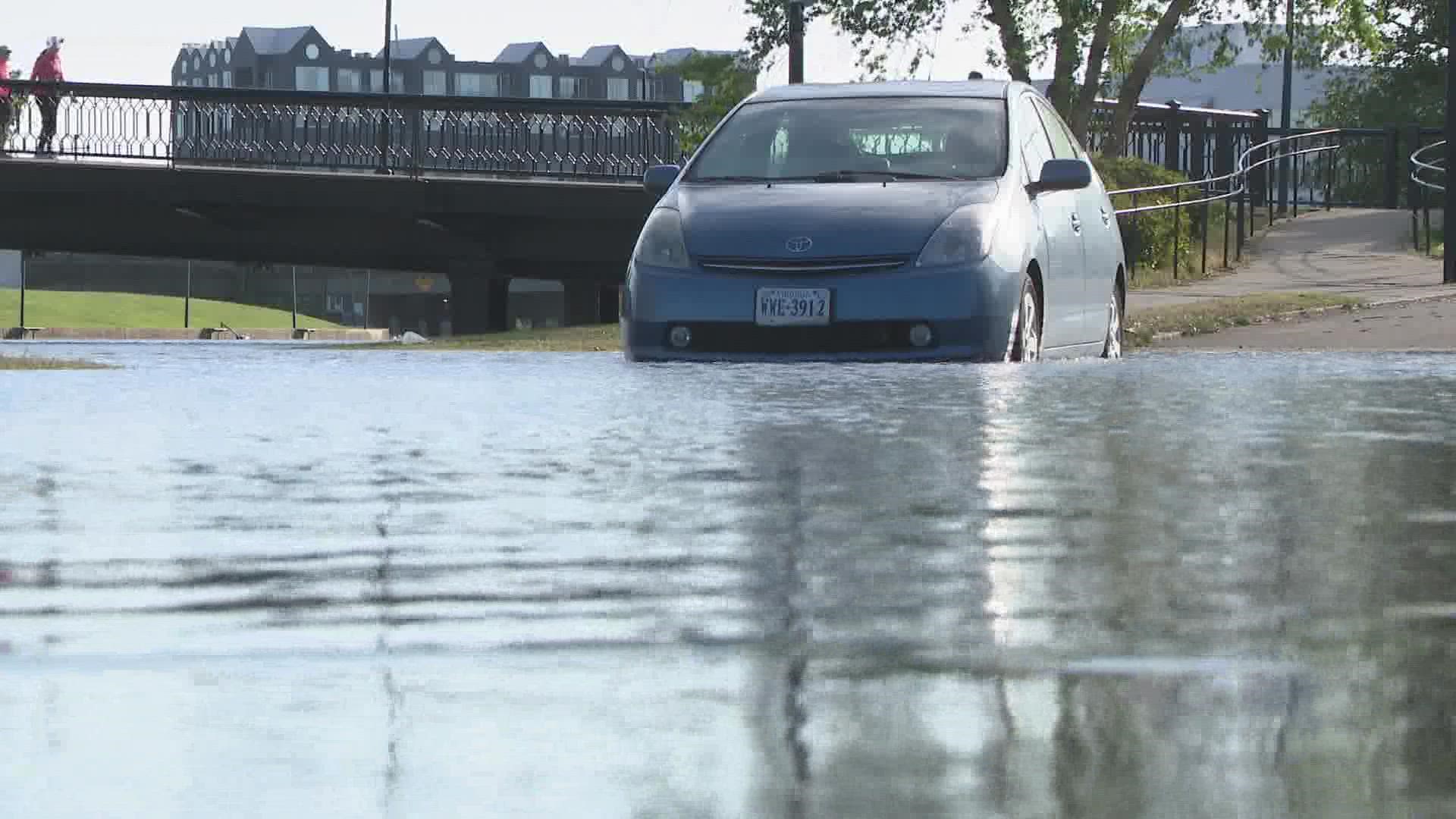PORTSMOUTH, Va. — Author's note: The video above is about the cost of flooding in Hampton Roads and Virginia. It aired on Sept. 15.
On Monday, birds chirped as the sun started to set on the Paradise Creek wate in Peggy Kennedy's backyard. An egret walked through the water where fish and turtles swim.
"You know, that's kind of the good thing. You can still see the beauty," said Kennedy as she looked out at nature. "But now you know what's in the water."
Kennedy said growing up, she slowly learned her own small paradise would soon become a big health risk, thanks to a scrap metal facility just around the corner from her home.
In 2009, the Environmental Protection Agency (EPA) declared a former iron and metal processing site in Portsmouth a "Superfund" site.
That means the area contains harmful levels of toxic chemicals, such as lead, radium and PCBs, that aren't safe for people. It also means a plan is needed to address the issue.
Peck Iron and Metal was responsible for handling, shipping and processing metal from businesses, government agencies and the military until it closed in 1999.
Now, the EPA is seeking community input on how they should proceed with the proposed cleanup plan of the site.
“This cleanup plan is long overdue. For 60 years, toxic and radioactive contamination from Peck Iron and Metal has threatened the health of people in Portsmouth and polluted the environment," Chesapeake Bay Foundation (CBF) Attorney Taylor Lilley said in a statement.
"Now is the time to urge the EPA to quickly implement a strong cleanup plan that prioritizes the community’s health and includes public outreach to protect people living nearby."
People who live in Cradock, Prentis Park, Brighton and other nearby neighborhood areas are at a high health risk from being so close to the site, according to the CBF.
In fact, residents in these areas specifically are exposed to nine nearby "Supersites" in total.
The chemicals have reportedly been able to wash into the nearby Paradise Creek during periods of heavy rain, according to the CBF's research. Chemicals have been found in the water, soil and in fish.
Kennedy said doctors diagnosed her with multiple myeloma, a rare blood cancer. She said she lost family members, several pets, and even some close neighbors to different types of cancer.
She said she wants the EPA to consider doing a study of the major health concerns among nearby residents and the exposure to the contamination to see if they are connected in any way.
"How many people have cancer here now? I don't know, but I think somebody needs to look into this and do something about cleaning it up," said Kennedy.
The public comment period for the EPA was technically closed in May of 2021. Christy Everett, the Hampton Roads Director for the Chesapeake Bay Foundation, said leaders with CBF pushed the EPA to re-open the public comment period to help neighbors like Kennedy have their voices heard again.
"We don't want just a quick cleanup, but something that is actually going to protect the site from future sea level rise and flooding areas and something that will really help dig into why the community is seeing these issues and how they are going to address to better understand that source," said Everett.
If you want to make your voice and ideas heard, click here to submit your input or mail it to the following address by Sept. 23, 2022:
U.S. EPA Region 3
Attn: Victoria Schantz
1600 John F. Kennedy Blvd (Mailcode 3SD23)
Philadelphia, PA 19103

